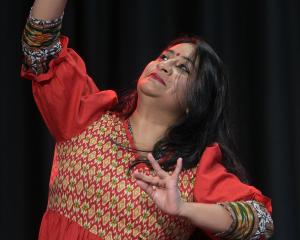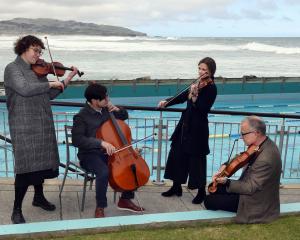All the pain and power of womanhood can be seen in the face of Dunedin dancer Swaroopa Prameela Unni.
Rehearsing her solo dance theatre piece Ātete — To Resist, Unni glances in the mirror, her eyes filled with meaning.
Her theatre piece explores the dark topic of domestic violence.
"So violence doesn’t mean just physical violence, which is really visible; it can also be emotional, it can also be financial, it can also be sexual."
She uses traditional dance styles that have deep personal meaning.
"I concentrate on Indian dance styles called Bharathanatyam and Mohiniyattam, and these are the dance styles that I have practised right from my childhood."
The plight of women in immigrant communities is an important part of her work.
Among developed countries, New Zealand had a high rate of family violence and about one in three women had experienced some sort of domestic violence, she said.
Women emigrating to New Zealand could become trapped, facing challenges ranging from shame, stigma, language issues and not knowing how to get help.
"We do have help here, but you know, there is no awareness around it. There’s not much because we are not part of that family violence conversation within New Zealand, or even Dunedin, for that matter."
Her work also explores how climate change affects women in developing countries.
An example was that women and girls, who were mainly tasked with water-gathering, would have to travel further to find water.
"So they have to travel further and further to uncharted territories or territories that they don’t know, they are not familiar with.
"So, when that happens, they are more vulnerable to attacks by strangers."
The performances include music by Indian composers Jyolsna Panicker and Sandeep Pillai. Lighting design is by Stephen Kilroy.
- Ātete — To Resist will be performed at Te Whare O Rukutia on Saturday, October 15 at 7pm















